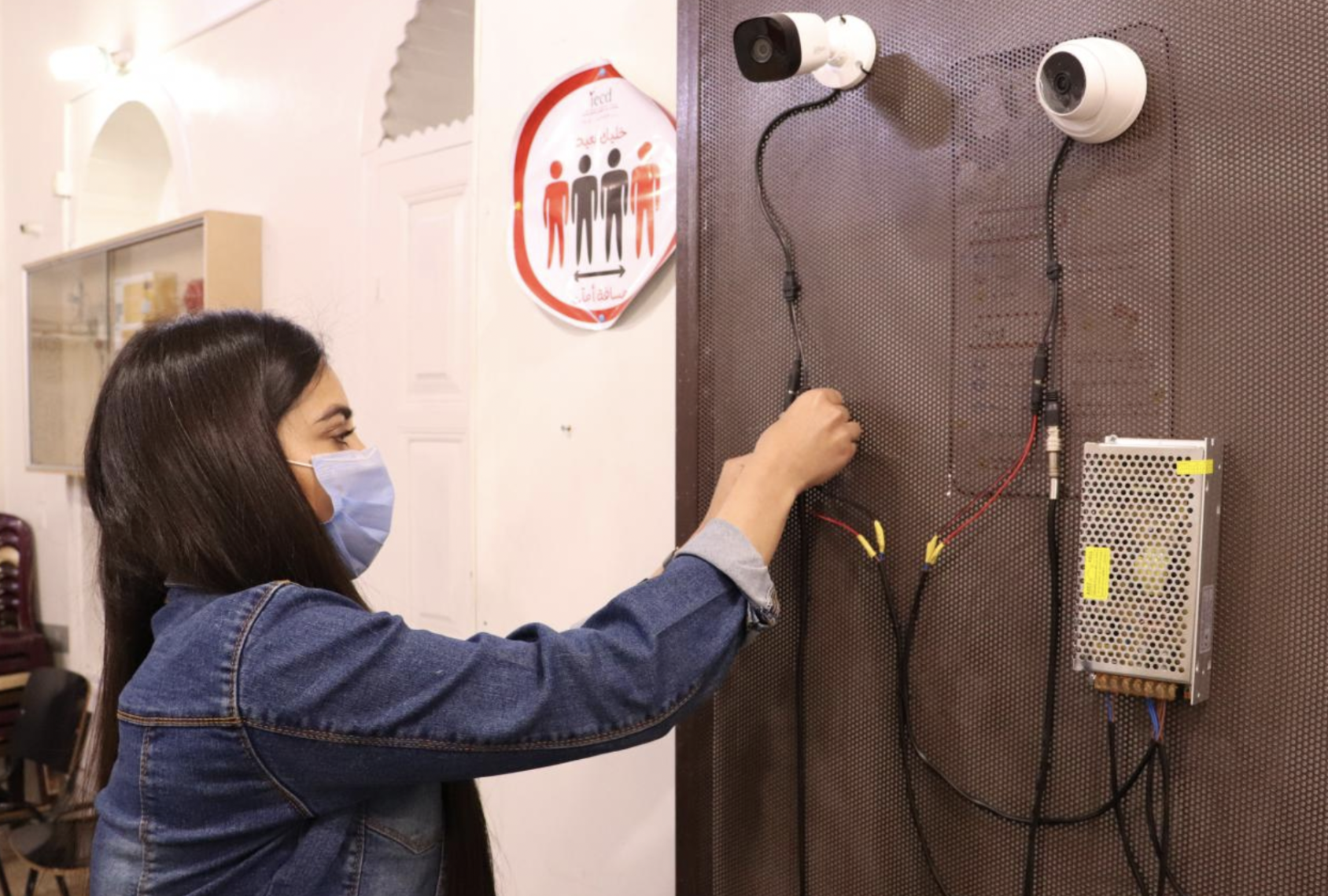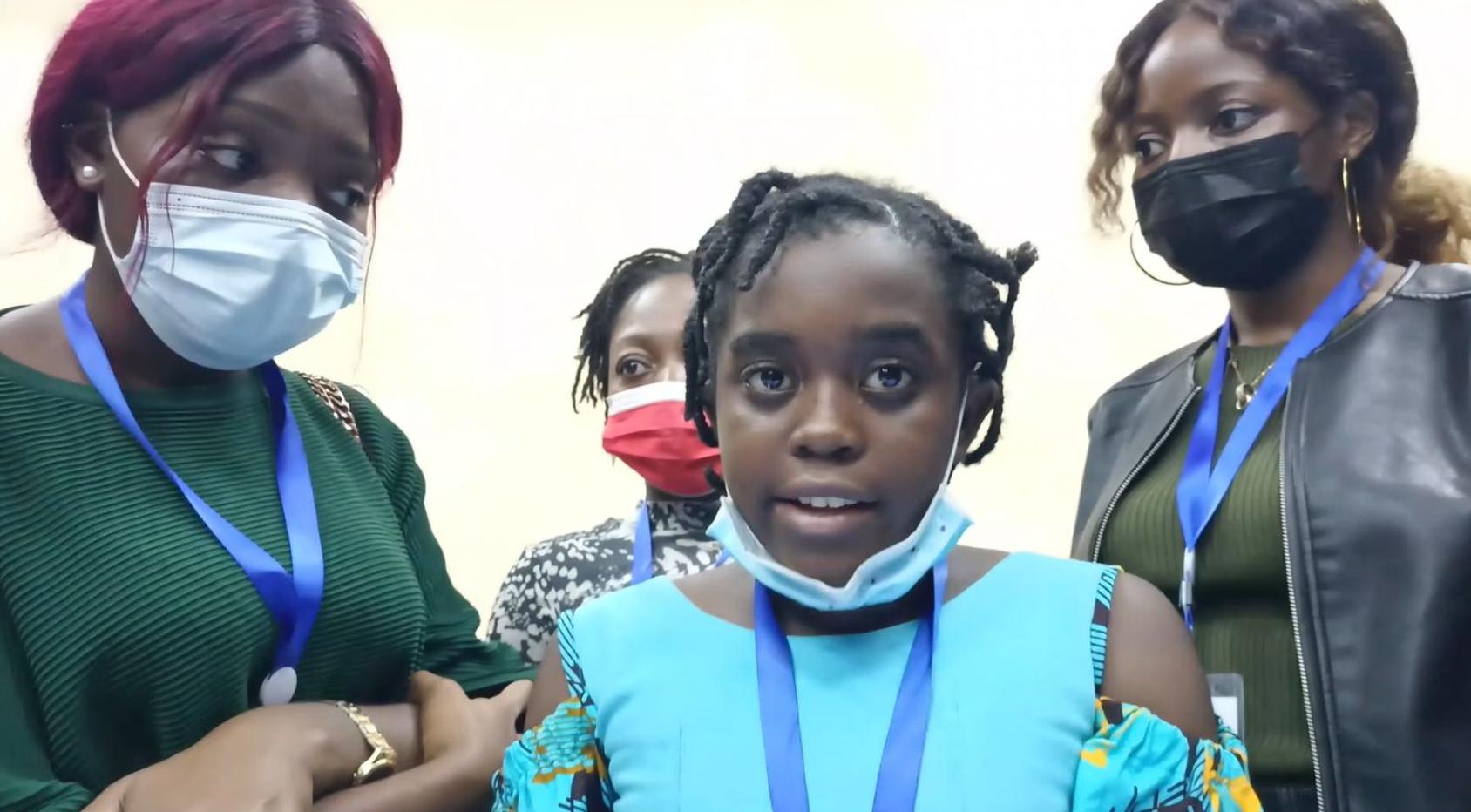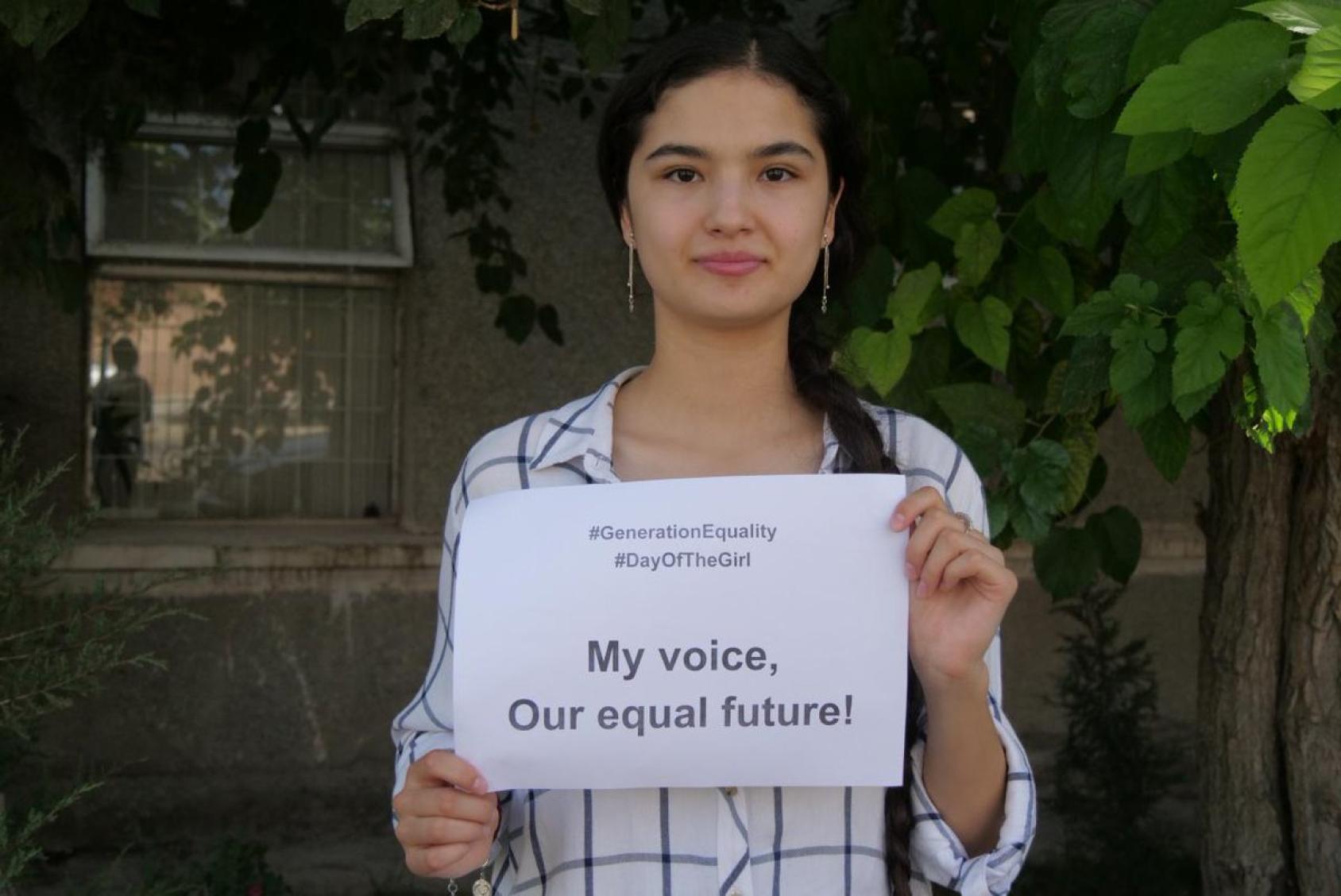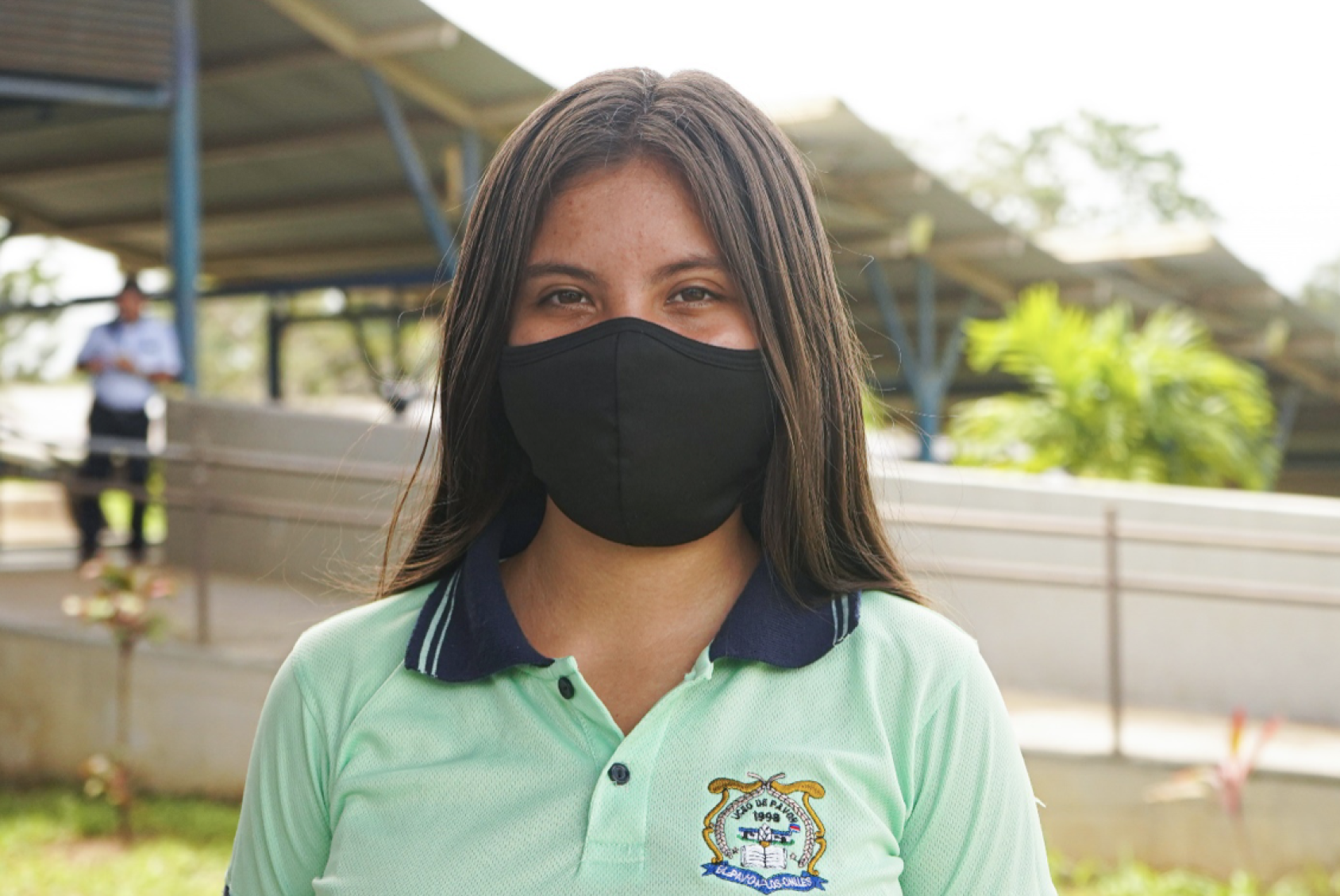Paving their own paths: Girls across the globe use technology to build a better future
"Investments in closing the digital gender divide yield huge dividends for all. The United Nations is committed to working with girls so that this generation, whoever they are and whatever their circumstances, can fulfil their potential." - UN Secretary-General, Antonio Guterres.
As coronavirus prompted countries worldwide to lock down, the consequences for girls came hard and unjust. Gender-based violence went up, and girls’ access to quality education went down.
But let’s face it: Even before the pandemic locked everyone down, gender discrimination and stereotypes had locked many girls in, confining their prospects.
Most girls, indeed, don't grow up in a world of opportunity. So, they must build one.
As we celebrate the International Day of the Girl Child, let’s pay tribute to the girls who use their digital technology skills as keys to open up doors.
These are their stories.
Empowering Syrian youth for better jobs

“This is what my father had always taught us; we should always seek real knowledge. It’s easy to get the title of an engineer, but I want to be a real one in both knowledge and skills,” says Madeleine.
When she first came to Damascus four years ago to pursue her childhood dream of studying telecom engineering, Madeleine was full of ambition.
Although the shocking death of her father during her first academic year weighed down on her, Madeleine remembered how much he cherished her and her siblings’ education, and this made her work even harder.
“The lectures were heavily theoretical,” recalls Madeleine. “However, to be able to get a job after graduation, one needs hands-on experience.”
To bridge the gap between her learning at the university and the market’s needs, Madeleine signed up for a UNICEF-supported course in computer networks maintenance.
Madeleine is one of 60 adolescents participating in the course that consists of practical training on crucial skills needed for jobs in the telecom field.
To learn more about this project, read the full article on UNICEF Middle East and North Africa's website.
In Sri Lanka, building girls’ confidence one coding challenge at a time
For girls stuck at home in Sri Lanka, Shilpa Sayura Foundation’s NextGen Girls in Technology programme, which was awarded the UNESCO Prize for Girls’ and Women’s Education in 2020, helps girls discover their passion for digital skills, including the Internet of Things(IoT) and coding.
Since the pandemic started, courses in the programme have reached around 2,500 primary and secondary school level students and over 500 teachers.
14-year-old Diyathma from Maharagma is one of them. She won the Foundation’s hackathon coding competition for her age group last year.
At first, Diyathma was not sure about participating in the programme.
“I was really nervous, I thought ICT was just for boys because they always seemed to find it so easy in class. For me, even the words were new, so I felt lost,” says Diyathma.
However, once she started the Grand Master exercises in Scratch, she became completely absorbed, allowing time to pass without even noticing. “Now I will definitely take ICT for my high school exams so that I can study computer programming and ICT at university,” she says.
Read the full UNESCO story here to learn more about the programme and register here for the 2021 UNESCO Prize for Girls’ and Women’s Education Award Ceremony on 15 October.
Bridging the digital and employment divide in Cameroon

12-year-old Happi Tientcheu recently participated in the Connected African Girls’ Coding Camp.
She and her group, Dangerous, developed Girls’ Orientation System, an online animation platform that helps girls and young women ICT career opportunities and find their “orientation for a brighter future,” as she says.
“Our application is personalized and free,” Happi explained.
Happi has demonstrated that digital technology is not just for boys and men.
Overall, 70 inventions were produced at the coding bootcamp, which gathered around 8,500 young African girls and women from across the continent in Cameroon, as well as online, under the auspices of UNECA, ITU and UN WOMEN, and in collaboration with Cameroon’s Ministry of Posts and Telecommunications.
About these young talented and passionate girls, Antonio Pedro, Head of UNECA’s Central Africa Office said:
“They only need to be rightly chaperoned and provided with the enabling environment to flourish their projects”.
To learn more about this project, read the full article on UNECA's website.
Breaking stereotypes in Tajikistan

From Ada Lovelace, a 19th century computer pioneer, to modern-day Marissa Mayer and Ellen Hancock – for Nurjan Tolibova, a 17-year-old programmer from Dushanbe, those trailblazers are the inspiration.
To improve her coding and tech skills Nujran joined PeshSaf, a project under the Youth Innovation Laboratory (YIL). YIL is the joint project of country’s Ministry of Education and Science and UNICEF, funded by the UK Government, that supports local youth, especially girls, to learn skills needed at the 21-century workplace
Although admitting that gender stereotypes are still affecting women in the non-traditional fields, like STEM, Nurjan strongly encourages the girls all over the world to pursue their dreams:
“Do not be afraid to study tech, regardless of the general perception of how programmers should "look like." If it’s something that you like, do it. Also, it’s important to study digital skills, finding new ways to raise the visibility and voices of girls and teens. Because only together can we help each other, and society overcome such harmful gender-based stereotypes”.
To learn more about the project, read the full article on UNICEF Tajikistan's website.
Girls and the digital divide in Costa Rica

COVID-19 changed the landscape of education and information for everyone worldwide. Even though most people have access to mobile phones, there remains a significant digital divide in Latin America and the Caribbean. For girls, who are especially vulnerable, access to online services and tools is integral to their education and futures.
Communities are finding innovative ways to provide equipment to girls.
For 17-year-old, Kattia, living in a remote area of Costa Rica means no internet connection. To access information and communication, she had to travel away from her home with her family’s mobile phone to find adequate reception to finish her schoolwork.
At the start of the 2021 year, the Ministry of Public Education implemented a blended education model, allowing students to physically return to school. As part of a UNICEF-supported project with the Government, Kattia received her first computer with internet access.
"This is the first computer we've ever had in my house. And it's a relief, it's super cool, because in addition to being super cute, it is tactile. I can use it to draw. It’s going to be very helpful, because after I graduate, I plan to study graphic design,” says Kattia. “Technology is essential for me.”
Article compiled and edited by Development Coordination Office. With many thanks to teams across the globe, including Syria, Sri Lanka, Cameroon, Tajikistan and Costa Rica. To learn more about the results of our work in this area and beyond, please read the UNSDG Chair Report on DCO.





































